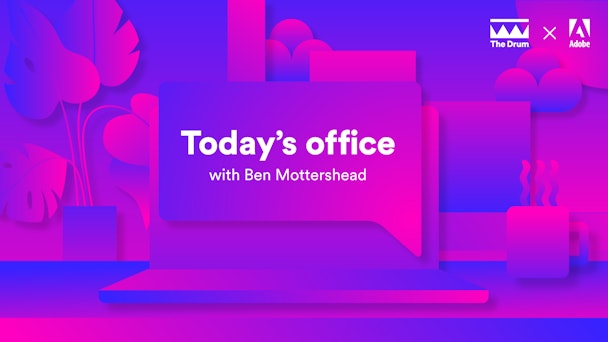Teamwork is even more important when your team is virtual
It might seem like a paradox when so many people are working remotely, but for Ben Mottershead, founder and creative director at Studio BND, the biggest lesson from the pandemic has been the importance of teamwork.

Taken together, Mottershead believes, this combination of technology and working practices has levelled the playing field
“Our biggest challenges have been around team collaboration and mental health,” he says. “It’s been really important to be able to rely on each other and trust each other in a team environment. And it’s really stripped out our hierarchy, because everyone’s had to step up.”
How could Creative Cloud for teams help you? Designed for creativity, built for business.
Concern for people’s mental wellbeing is woven into Studio BND’s DNA. Mottershead left an agency job in 2018 for mental health reasons, and went freelance. Starting his own agency was always in the back of his mind, but Covid-19 sped up the process and he launched Studio BND towards the end of last year.
“At BND we’ve run a four-day-a-week studio since we started,” he says. “It’s not for income reasons; I want our staff to feel healthy and rested, and not like they’re going to burn out at any moment.”
The other key element in Mottershead’s thinking is trust: “I’ve always believed that autonomous staff are happier staff. It’s about giving staff the responsibility to make their own decisions, to decide how they work best.
“For a long time, bigger companies had this ‘bums on seats’ mentality. If you weren’t in the office, working, they didn’t trust that you were doing the work. But now we’re in this remote working environment, you have to place a lot more trust in your staff getting their work done. The person on the end of that feels more empowered, and you’ll develop a much happier agency.”
Brains not bums
Another problem with the ‘bums on seats’ mindset is its impact on creativity.
“If you’re just selling people’s hours, you have to sell as many as possible to meet your overheads etc. We’ve been seeing the creative process being disregarded a little by people just selling their team’s hours, rather than seeing it as an expertise you have to train for,” Mottershead says.
“We’re in a hyper-competitive market, it’s never been easier to up-skill yourself, so we have to turn the conversation back to the creative process being a value-based skill and not just based on time. Any agency that wants to stay afloat and stay relevant is going to have to start selling their expertise rather than just their hours.”
Tooling up
The revolution in agency working practices has been made possible by an explosion in the tools to allow remote collaboration.
“If you look at Slack, Zoom, WhatsApp, Adobe, we have very good technological infrastructures in place to keep the day-to-day going,” Mottershead says. “We live off the Google Suite - we’ve found that’s a very good collaborative tool for clients and their project managers.
“Then we exclusively use Adobe because of the cross-compatibility of the software. We’re almost full-service – we do illustration, animation, graphic design and video editing – and Adobe is the only creative software organization that has that reach in terms of the software it delivers. As a result, we can work with all our teams, all our freelancers, across all the software we need, in every medium we need, and it can all be accessed via the cloud.”
The playing field tilts again
Taken together, Mottershead believes, this combination of technology and working practices has levelled the playing field between big and small agencies.
“It’s been a shock to the big agencies that have used the weight of their names, or the number of staff they have, to sell their authority in the industry,” he says. “Suddenly they were being outsold by very lean, five-man agencies that could work from anywhere, and that could hire the best talent from around the world, because they were much more open to that style of working from the beginning.”
But the situation is still fluid. A year on, the big agencies are moving towards the more flexible ways of working smaller shops have used for years. Mottershead sees this as a massive win for employees’ mental health, but also expects the landscape to become even more competitive for smaller agencies like his own.
“I think it’ll be harder for us to stay in the limelight, and to find new ways to sell our services and processes,” he says.
Content created with:

Adobe
Work management. Built for the enterprise. Connect, collaborate, and execute on complex workflows - from anywhere.
Find out more